Here is the STEM grants list for 2023!
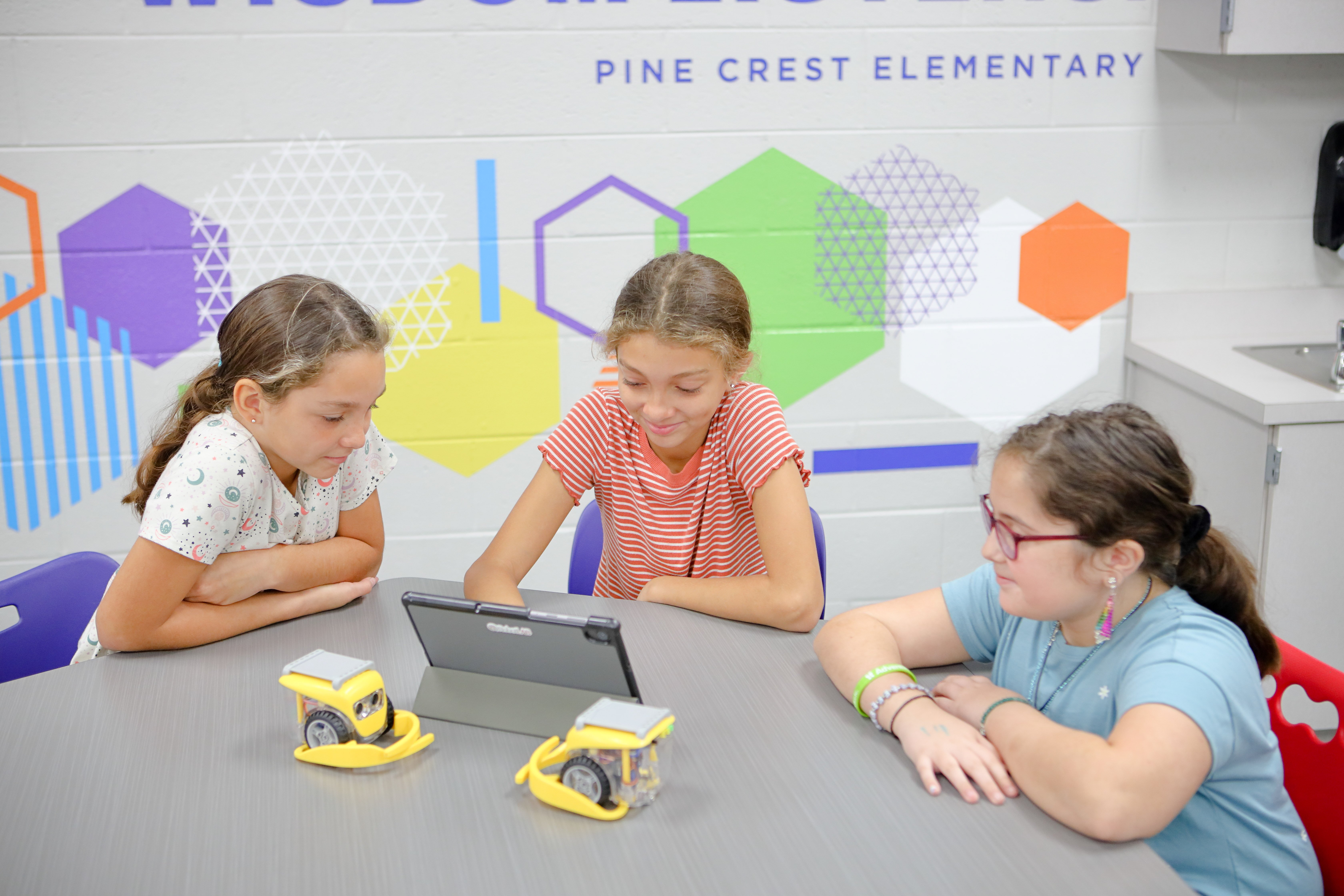
At RobotLAB, we believe that every student deserves access to the latest technologies and learning tools to prepare them for the future.
As part of our commitment to supporting STEM education, we've compiled a list of existing and new grants that schools can apply for to invest in robotics technology and support their educational programs.
We understand that finding the right funding can be a challenge for schools, which is why we've done the research and put together a comprehensive list of STEM opportunities and resources to help you navigate the offerings available.
- 0 Comments
- May 11, 2023 3:27:21 PM
- Posted by Maria Alejandra Calcetero
- Topics: Robotics, EdTech, STEM, Education, code, 21st Century Classroom, Special Education, Artificial Intelligence, data literacy, Coding, Robots,, students, programming, Technology, VR, Realidad Virtual, STEMchat, Edchat, AI, k12, Virtual Reality, virtual learning, classroom, Inteligencia Artificial, Literacy, STEM literacy
Emphasizing the Importance of STEM to Students
By Devin Partida
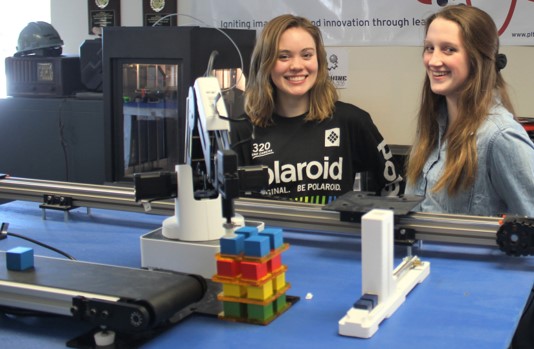
Science, technology, engineering and math (STEM) make the world go round. It drives everything from medicine to spaceflight, enriching everyone’s lives and securing the future. If your students need further proof of STEM’s importance, here are several reasons it’s so valuable.
- 0 Comments
- Apr 12, 2023 6:41:41 PM
- Posted by Maria Alejandra Calcetero
- Topics: Robotics, EdTech, STEM, Education, code, 21st Century Classroom, Special Education, Artificial Intelligence, data literacy, Coding, Robots,, students, programming, Technology, VR, Realidad Virtual, STEMchat, Edchat, AI, k12, Virtual Reality, virtual learning, classroom, Inteligencia Artificial, Literacy, STEM literacy
Using Robotics to Support Sustainability
By Devin Partida
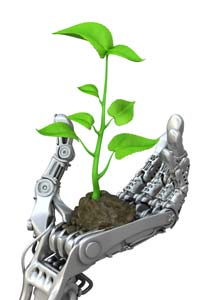
STEM educators have numerous tools at their disposal to keep students engaged with technology. It’s necessary in a tech-driven world, where students crave modern interactivity to maintain their attention and process concepts. Robotics is steadily becoming commonplace in classrooms as incorporation simplifies complex ideas and promotes sustainability to youth.
What can robotics offer STEM educators wanting to convey sustainable lessons to their students, and how can robots make a greener planet?
- 0 Comments
- Feb 10, 2023 2:31:02 PM
- Posted by Maria Alejandra Calcetero
- Topics: EdTech, STEM, Education, Computer Science, 21st Century Classroom, School, Student Engagement, Middle School, High School, autism, AI
How Robots Can Be Used in Autism Therapy
By Shannon Flynn
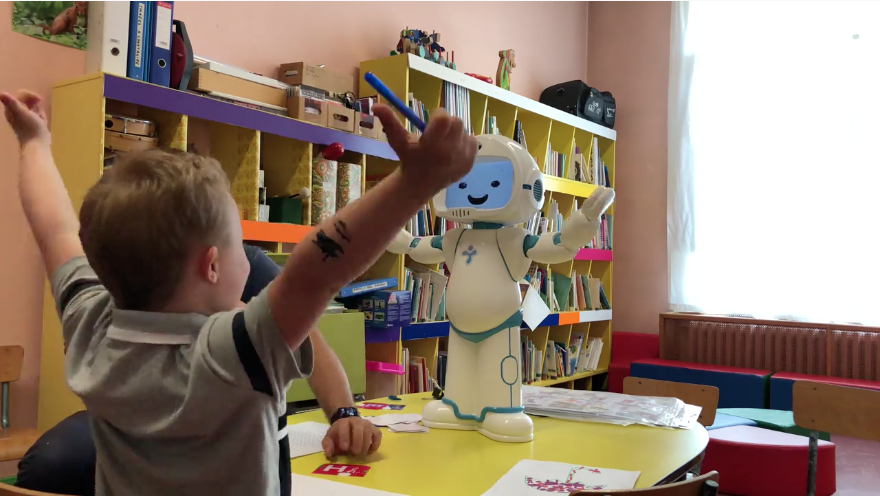
People are increasingly interested in how robots can help humans. From manufacturing facilities and complicated surgical procedures to preventing loneliness among older people and other isolated individuals, the possibilities are endless. Another area of significant interest relates to how robots could supplement therapy for people with autism. This approach is a developing option, but it’s already proving its worth.
- 0 Comments
- Feb 6, 2023 11:37:20 AM
- Posted by Maria Alejandra Calcetero
- Topics: EdTech, STEM, Education, Computer Science, 21st Century Classroom, School, Student Engagement, Middle School, High School, autism, AI
How to Secure Funding for STEM Extracurriculars
By Devin Partida

Maybe you have an amazing idea for a STEM extracurricular project, but you simply lack the budget needed to make it a reality. Here are the words you probably don’t want to hear: You have to write a grant proposal. Though it may seem daunting, as an educator, you already have the necessary skills to draft a compelling grant submission and secure the funds you need. Let’s get started.
- 0 Comments
- Nov 17, 2022 10:00:00 AM
- Posted by Maria Alejandra Calcetero
- Topics: EdTech, STEM, Education, Computer Science, 21st Century Classroom, School, Student Engagement, Middle School, High School, AI
Promoting Diversity and Inclusion in Robotics
By Carol Grace

Compared to other careers, underrepresentation is rampant in STEM-related roles. According to job statistics by Pew Research Center, Black and Hispanic workers remain underrepresented in various STEM occupations, only making up 8-9% of STEM jobs. This share is lower in specific job clusters, such as engineering and architecture, with only 5% of black workers making up the total workforce. While women comprise 50% of the STEM workforce, 74% are healthcare practitioners and technicians — making other fields vastly outnumbered by men. With robotics highly dependent on computers and engineering, it’s unsurprising that diversity in the industry is at an all-time low.
- 0 Comments
- Nov 16, 2022 7:48:57 AM
- Posted by Maria Alejandra Calcetero
- Topics: EdTech, STEM, Education, Computer Science, 21st Century Classroom, School, Student Engagement, Middle School, High School, AI
Using Robotics to Teach About Cybersecurity
By Devin Partida Photo by Dan Nelson on Unsplash
Photo by Dan Nelson on Unsplash
Curricula must shift for educators to create a well-informed next generation of cybersecurity analysts. Though robotics is an umbrella containing many branches, K-12 teachers can use robotics to teach cybersecurity more effectively than other subjects.
- 0 Comments
- Oct 6, 2022 3:11:12 PM
- Posted by Maria Alejandra Calcetero
- Topics: EdTech, STEM, Education, Computer Science, 21st Century Classroom, School, Student Engagement, Middle School, High School, AI
How Crucial Is Artificial Intelligence to the Rise of Ed Tech?
By Ellie Poverly-jpg.jpeg?width=1920&name=possessed-photography-jIBMSMs4_kA-unsplash%20(002)-jpg.jpeg) Image Source: www.unsplash.com
Image Source: www.unsplash.com
Anyone in the education sector knows that new technologies are poised to revolutionize the traditional classroom.
In the past few years, educational institutions have adapted to a new normal brought about by the COVID-19 pandemic. Parents, students, teachers and administrators had to remain flexible, adjust to virtual learning environments and adopt new digital technologies to facilitate learning.
Although the industry is still reeling from the adverse effects of the pandemic, the global disruption sparked major growth in one relevant sector: education technology (ed tech).
A primary example of ed tech is artificial intelligence (AI), which has already proven itself as a highly useful, effective tool with various applications and benefits. How important is AI in supporting the rise of the ed tech market? Will more K-12 and secondary education institutions adopt AI-based solutions in the future?
- 0 Comments
- Sep 17, 2022 10:00:00 AM
- Posted by Mike Nardine
- Topics: EdTech, STEM, Education, Computer Science, 21st Century Classroom, School, Student Engagement, Middle School, High School, AI
The Alan B. Levan | NSU Broward Center of Innovation integrates a robotics AI LAB for entrepreneurs
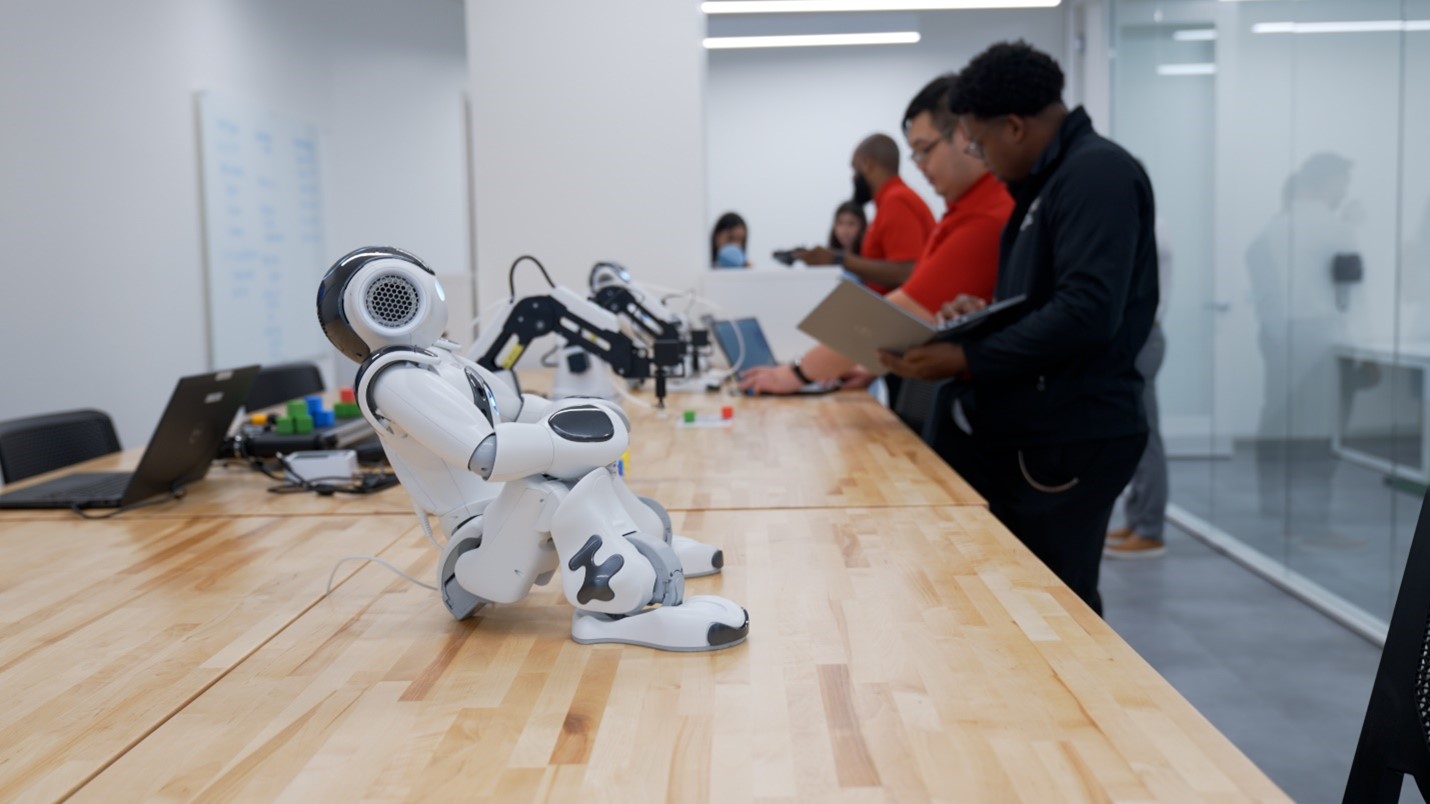
The implementation of the lab will provide entrepreneurs with real world experience in robotics and artificial intelligence.
September 1st, 2022 – San Francisco, CA – The Alan B. Levan | NSU Broward Center of Innovation (“Levan Center”), in partnership with RobotLAB, the leading educational robotics company, partnered to build an artificial intelligence and robotics lab.
- 0 Comments
- Sep 1, 2022 11:11:55 AM
- Posted by Mike Nardine
- Topics: EdTech, STEM, Education, Computer Science, 21st Century Classroom, School, Student Engagement, Middle School, High School, AI
Integrating Robotics into Health Sciences Courses
By Dan Matthews
 Image Source: www.unsplash.com
Image Source: www.unsplash.com
The marriage between health science and technology has been a long and happy one. However, that union has perhaps never been more important than it is today. Now, more than ever, state-of-the-art technologies, from bioengineering to artificial intelligence (AI), are playing a leading role in optimizing patient care, supporting healthcare providers, and expanding the scope of medical knowledge.
Among the most significant and promising of these technologies in the domain of health, sciences are robotics.
These technologies are not only increasingly being used in clinics, hospitals, and operating rooms, but also in health sciences classrooms at every level, including primary, secondary, and post-secondary education. This article explores the reasons why you should begin integrating robotics into your health sciences courses and identifies key strategies for doing so.
- 0 Comments
- Mar 14, 2022 10:00:00 AM
- Posted by Maria Alejandra Calcetero
- Topics: Robotics, EdTech, STEM, Education, code, 21st Century Classroom, Special Education, Artificial Intelligence, data literacy, Coding, Robots,, students, programming, Technology, VR, Realidad Virtual, STEMchat, Edchat, AI, k12, Virtual Reality, virtual learning, classroom, Inteligencia Artificial, Literacy, STEM literacy
Relevant Posts
Popular Posts
Subscribe to Email Updates
-
I Want To Learn MoreADDITIONAL INFORMATION


